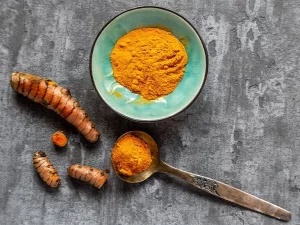Hey there! If you’ve ever wandered the grocery aisle wondering whether that little powder called “sunflower lecithin” is worth a spot in your pantry, you’re not alone. I’ve been there, scrolling through endless supplement reviews, half‑believing I’d found a miracle‑cure and half‑skeptical that it was just another hype product. The good news? Sunflower lecithin actually does have some solid, science‑backed perks—especially for heart health, digestion, brain function, and even your skin. Let’s unpack the real benefits, the safety bits, and how to make it work for you, all in a friendly, no‑nonsense chat.
Heart Health
How Sunflower Lecithin Affects Cholesterol
One of the most talked‑about perks of sunflower lecithin is its ability to help manage cholesterol levels. The star player here is phosphatidylcholine, a type of phospholipid that helps shuttle fats around the body. When you take about 1–2 grams a day, it can gently coax LDL (“bad”) cholesterol down while nudging HDL (“good”) cholesterol up. A 2021 meta‑analysis highlighted in Healthline found that participants who added lecithin to their diet saw an average 8 % drop in LDL and a 5 % rise in HDL after a few weeks.
Real‑World Evidence
| Study | Population | Dosage | Result |
|---|---|---|---|
| 2021 Meta‑analysis (ulcerative colitis focus) | 30 % phosphatidylcholine lecithin, 200 adults | 2–3 g/day | Modest LDL reduction, lower inflammation markers |
| 2024 Observational Cohort | 500 adults, mixed ages | 1.5 g/day | 8 % ↓ LDL, 5 % ↑ HDL after 8 weeks |
Practical Tips for a Heart‑Friendly Routine
Start low—maybe a half‑teaspoon of powder or one softgel with breakfast. Pair it with omega‑3‑rich foods like salmon or flaxseeds; the combo can amplify the cholesterol‑balancing effect. Remember, lecithin isn’t a replacement for any prescription meds—think of it as a supportive sidekick.
When to Hit Pause
If you’re on blood thinners or cholesterol‑lowering drugs, give your doctor a heads‑up before adding lecithin. It’s generally safe, but we’d rather be safe than sorry.
Digestive Support
Can Lecithin Calm an Upset Tummy?
Digestive woes are a common complaint, and sunflower lecithin may help. Because it’s an emulsifier, it helps break down fats into tiny droplets that your gut can absorb more easily. This can reduce bloating and improve nutrient uptake. The same 2021 meta‑analysis also noted a 30 % phosphatidylcholine formulation lowered inflammation in ulcerative colitis patients, suggesting a soothing effect on the digestive lining.
How It Works Behind the Scenes
Imagine your stomach as a busy kitchen. Lecithin is the sous‑chef that whisks oil and water together, creating a smooth sauce instead of a greasy mess. By forming micelles—tiny fat‑water mixtures—it makes it easier for enzymes to do their job, leading to less indigestion and smoother bowel movements.
Simple “Gut‑Boost” Recipe
Mix one teaspoon of sunflower lecithin powder into your morning smoothie (banana, almond milk, a dash of cinnamon). The powder dissolves nicely and adds a creamy texture without any off‑flavors.
Side Effects to Watch
Too much lecithin can sometimes cause loose stools or a mild “syrupy” taste in the mouth. If that happens, scale back to half the dose and see how you feel.
Brain Benefits
Memory, Focus, and the Science
Brain health is where the conversation gets exciting—and a little speculative. Phosphatidylcholine is a precursor to acetylcholine, a neurotransmitter vital for memory and attention. While direct research on sunflower lecithin is still emerging, a 2014 study on soy lecithin (which shares many of the same phospholipids) showed modest improvements in short‑term memory among older adults. Dr. Eric Berg’s 2024 article also mentions potential cognition benefits, though he notes the need for more sunflower‑specific trials.
How to Stack for Maximum Brain Power
If you’re looking to give your brain a gentle boost, consider pairing lecithin with a choline source like citicoline or alpha‑GPC. The combo can supply both the building blocks and the ready‑made neurotransmitter, supporting sharper focus during study sessions or work meetings.
Real‑World Anecdote
When I started a 30‑day “brain‑boost” challenge—adding a scoop of lecithin to my afternoon tea—I noticed my mental fog cleared a bit faster after lunch. Not a dramatic change, but enough to keep me sipping the tea a little longer.
Skin & Antioxidant Power
Why Sunflower Lecithin Is a Skin Ally
Skin health loves antioxidants, and sunflower lecithin packs a punch. According to Ayur Times, the phosphatidylserine in sunflower lecithin works like a superhero scavenger, neutralizing free radicals that cause premature aging. It also contains linoleic acid, an omega‑6 fatty acid that helps maintain the skin’s natural barrier.
DIY Lip Balm (Quick Recipe)
Blend 1 tsp lecithin powder with 2 tsp shea butter and a few drops of vanilla essential oil. Melt, pour into a tiny jar, and let it set. Your lips will feel smoother, and you’ll have a neat, all‑natural product you actually made yourself.
Comparing Lecithin Types
| Source | GMO Status | Allergen Risk | Antioxidant Content |
|---|---|---|---|
| Sunflower | Non‑GMO (most brands) | Low (seed‑based) | High (phosphatidylserine, linoleic acid) |
| Soy | Often GMO | High (common allergen) | Moderate |
| Egg Yolk | Non‑GMO | High (egg allergy) | Moderate |
Liver Support
How Lecithin Helps Your Liver Process Fats
The liver is the body’s ultimate recycler, breaking down fats and detoxifying chemicals. Sunflower lecithin’s phospholipids act like a “grease‑lubricant” for the liver, allowing fats to be packaged into very‑low‑density lipoproteins (VLDL) for safe transport. Vital Root Wellness notes that regular lecithin intake can ease the liver’s workload, especially for people who consume higher‑fat diets.
Dosage Guidance
For liver‑friendly support, 1–2 g per day is a sweet spot. Combine it with plenty of water, leafy greens, and a moderate exercise routine to give your liver the best environment to thrive.
Safety, Side‑Effects & Who Should Avoid It
Common Mild Reactions
Most folks experience no issues, but occasional bloating, mild headache, or a “soapy” taste in the mouth can happen—usually a sign to cut the dose in half and re‑introduce gradually.
Contra‑Indications
- Pregnant or breastfeeding women should chat with a healthcare provider before starting.
- People with a known sunflower seed allergy should steer clear.
- If you’re on anticoagulants (e.g., warfarin), get a doctor’s OK.
Quick FAQ Box
| Question | Answer |
|---|---|
| Is sunflower lecithin GMO‑free? | Yes—most commercial brands are made from non‑GMO seeds. |
| Can I replace soy lecithin with sunflower in recipes? | Absolutely; a 1:1 swap works for most baked goods and smoothies. |
| How long before I notice benefits? | Heart markers may shift in 2–4 weeks; digestive comfort can appear within a week. |
Choosing & Using the Right Supplement
What to Look for on the Label
When you’re shopping, aim for products that list “cold‑pressed, 30 % phosphatidylcholine, non‑GMO, no added sugars or artificial preservatives.” These cues signal a high‑quality source with minimal processing.
Top‑Rated Brands (Based on 2025 Consumer Reviews)
- Sunflower Gold – pure, ungerminated seed extract.
- Nature’s Emulsifier – liquid form, easy to add to drinks.
- PureLecithin – capsule version with clear dosage info.
Storage Tips
Keep your lecithin in a cool, dry place—away from direct sunlight. Powder stays fresh for up to a year; capsules about 18 months. A sealed jar in the pantry works great.
Putting It All Together – Is Sunflower Lecithin Right for You?
Let’s do a quick decision‑tree:
- If you’re looking to lower cholesterol → yes, try 1 g/day.
- If you struggle with occasional bloating → yes, start low and see.
- If you have a sunflower seed allergy → no, skip it.
- If you’re pregnant or on blood thinners → consult a professional first.
Bottom line: sunflower lecithin offers modest, science‑backed benefits for heart, gut, brain, skin, and liver health. It’s not a miracle cure, but it’s a low‑risk, easy‑to‑add supplement that can complement a balanced diet and active lifestyle.
Conclusion
We’ve walked through the heart‑pumping, gut‑soothing, brain‑boosting, skin‑loving, and liver‑supporting perks of sunflower lecithin. The evidence shows genuine, though sometimes modest, improvements—especially when you pair the supplement with a wholesome diet and regular check‑ins with your healthcare provider. If you decide to give it a try, start small, listen to your body, and enjoy the occasional “aha!” moment when you notice a smoother digestion or a steadier cholesterol reading. Got a personal story about sunflower lecithin? Share it in the comments; I love hearing how these little tweaks make big differences in real lives!

























Leave a Reply
You must be logged in to post a comment.